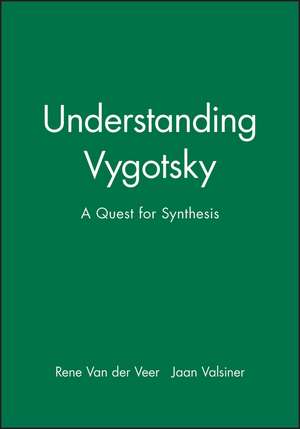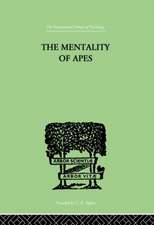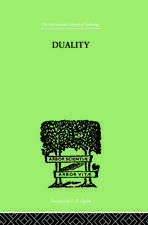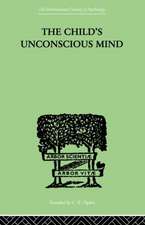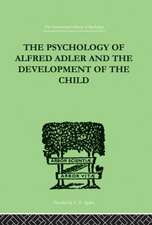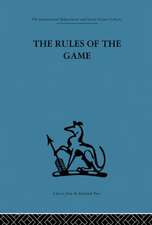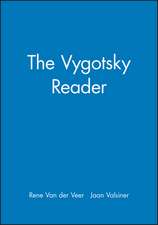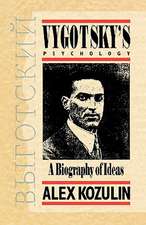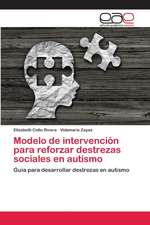Understanding Vygotsky – a Quest for Synthesis
Autor R Van Der Veeren Limba Engleză Paperback – 2 sep 1993
Understanding Vygotsky not only shows the extent to which Vygotsky's work can be further developed to be relevant to the end of the twentieth century but also opens up scope for a more detailed analysis of his contemporaries. It will be essential reading for all students of Vygotsky and his ideas.
Preț: 402.12 lei
Nou
Puncte Express: 603
Preț estimativ în valută:
76.95€ • 80.24$ • 63.96£
76.95€ • 80.24$ • 63.96£
Carte tipărită la comandă
Livrare economică 20 martie-03 aprilie
Preluare comenzi: 021 569.72.76
Specificații
ISBN-13: 9780631189558
ISBN-10: 0631189556
Pagini: 464
Dimensiuni: 152 x 229 x 25 mm
Greutate: 0.67 kg
Editura: Wiley
Locul publicării:Chichester, United Kingdom
ISBN-10: 0631189556
Pagini: 464
Dimensiuni: 152 x 229 x 25 mm
Greutate: 0.67 kg
Editura: Wiley
Locul publicării:Chichester, United Kingdom
Public țintă
advanced undergraduates and above in developmental psychology and education; and cognitive and theoretical psychologyNotă biografică
Descriere
This book presents the most comprehensive introduction to the life and ideas of Lev Vygotsky (1896-1934) yet written. As a key to understanding one of the most potent influences on developmental theories this century, Van der Veer and Valsiner explore Vygotsky's ideas in the contexts of Russian psychology and the politics of the inter-war years.
